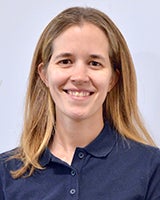
Field Service
What we do
Our Equine and Food Animal Field Services are a fully equipped ambulatory practice offering preventative health care, herd health, reproductive services, lameness evaluation and treatment, medical and surgical assessments, on farm diagnostic services, and emergency veterinary care for equids, cattle, and some small ruminants.
Emergency service is available to our existing clients 24/7/365, along with our capacity to consult with our hospital-based clinical specialists.
Equine Field Service Overview
Our services are provided by, or in consultation with, our board-certified specialists and other hospital-based clinical specialists including our ophthalmologist, surgeons, and theriogenologists.
Our primary care service develops a personal relationship with our clients and our patients. Our services are provided by, or in consultation with, three board certified specialists on staff (boarded internist, boarded equine practitioner, and boarded theriogenologist) as well as access to consultation with all of the in hospital specialists including our ophthalmologist, surgeons and theriogenologists.
Equine Wellness Program
From spring vaccines and dental exams to biannual physicals, New Bolton Center’s Equine Wellness Program provides comprehensive, on-farm preventative medicine to optimize your horse’s health. With two program tracks and additional add-on services, you can enjoy a customized care plan tailored to your horse’s specific needs at a discounted price.
Registration for the 2025 program is closed, if you have any questions please call (610) 925-6310.
Equine Field Clinical Services
Including vaccinations, Coggins tests, bloodwork, fecal egg counts, targeted deworming protocols, nutritional counseling, senior care, and behavior analysis.
Subtle to obvious lamenesses are worked up thoroughly, leaving no stone unturned. Diagnostic analagesia (nerve or intra-articular blocks) are used to localize lameness. At that point, directed imaging is used to diagnose the problem.
Our multiple, state-of-the-art cordless digital radiography systems provide top quality field images that are then reviewed in house on specialized screens in our radiology viewing room. A radiologist or surgeon is always available for consultation.
These examinations are some of the most comprehensive that we do as every system in the horse must be expertly evaluated and no abnormalities overlooked. We can follow up our examination with top quality imaging as requested.
With a board certified Reproduction Specialist on our team, we offer a unique expertise in the field that is commonly only found in a hospital. We are very excited about our ability to serve farms in Chester County with top-notch reproductive care!
With multiple Powerfloats and years of experience, our team can service all mouths from normal to abnormal. A veterinary dentist on hand at New Bolton Center allows us to offer many options for difficult mouths.
Multiple board certified veterinarians on staff, including one boarded in Internal Medicine, means that we are on the cutting edge of medical diagnostics and treatments. We conveniently offer procedures in the field that are frequently referred in to the hospital.
Gaining much of our expertise from the veterinarians in our Neonatal Intensive Care Unit means that we are able to accurately diagnose and treat foals on the farm. The success of working on foals can be dictated by how long it takes to obtain a diagnosis so efficiency and accuracy are key.
Our staff is comfortable with routine field surgeries such as castration, mass removals, and other simple surgeries. For certain more complex procedures, we can frequently bring a board certified surgeon or specialist with us to the farm, enabling procedures to be done at home for the convenience of the horse and owner.
Top of the line endoscopes mean that we are able to perform quality exams including endoscopy of the guttural pouches. We can evaluate the throat, guttural pouches, and trachea while obtaining digital video that can later be used for further review.
Our experts can bring dynamic endoscopy to your farm. If you are concerned that your horse is “making a noise” when it is exercised, we can put a scope in place while you ride it. Recording this session allows us to evaluate your horse’s throat in the exact situations that give you concern.
Equine chiropractic is a form of manual therapy to alleviate musculoskeletal pain. By physically manipulating or adjusting and physical different anatomic regions or skeletal articulations, the clinician can induce a therapeutic response through the release of pressure in joint structures, muscle function, and neurological reflexes.
Acupuncture, the practice of placing thin needles in certain points on a horse’s body, can help relieve musculoskeletal pain, respiratory tract disorders, reproductive issues, and gastrointestinal duress. We offer two certified acupuncturists on our staff.
Teleconsultation (veterinarian to specialist) and telemedicine (veterinarian to client) allow clinicians from multiple institutions to collaborate on medical cases on-site. Experts in any area of equine or large animal medicine can take a collaborative approach and provide insights as well as case-by-case solutions on the spot.
Equine Health Certificate
Proof of Vaccine Request
Healthy Horse Tips
Keeping your horse healthy and happy is particularly important in the spring when snows melt, rains bring mud, but you still want to get out and get ready for the upcoming season. Here are some great tips on caring for your horse during this challenging season, developed by the equine experts at New Bolton Center’s Equine Field Service.
- Schedule those check-ups
It takes vaccines two weeks to take effect: Make sure to get them on your calendar before the bugs make their return.
A brief check-up is also a great idea to make sure no health issues have cropped up since the last exam – especially for senior equines! - Keep an eye on the feet
Mud can be an unfortunate side effect of the changing season and can cause headaches such as limb dermatitis, hoof abscesses, and thrush.
Daily checks and hoof cleanings help to keep these ailments at bay. - Watch what they eat
Grass will be growing and some horses need their sugars restricted early in the spring. Others may have been receiving extra nutrition to get them through the difficult winter.
Tailor these intakes as your fields start to flourish. - Get back to work
Show season starting soon? Don’t get sidelined.
Having performance horses evaluated prior to the competition season is always a great idea to identify any potential problems before they become limiting. - Start with clean
Mold and dust can lead to allergic airway and skin reactions, so a deep clean of the barn is never time wasted.
Check medications and dispose of anything that has expired. Talk with your vet about what to keep at-the-ready so you’re both ready to handle any at-home emergencies.
Deworming Recommendations
For adult horses over 3 years old, annual fecal testing is recommended during spring or fall, the peak seasons for parasite infections. Fecal samples should be collected at least two months after the last deworming (or three months after using moxidectin/quest) and should contain no more than one or two fecal balls in a sealed Ziploc bag. These samples can remain viable for a few days at ambient temperature or can be refrigerated. Clinicians will discuss the results to develop a deworming strategy for the year, focusing on reducing intestinal parasite loads and maintaining horse health.
Shedding status, which refers to the amount of strongyle-type parasite eggs, determines the deworming protocol.
Low shedders (Fecal Eggs Counts ≤ 150 Epg): Ivermectin In April and Ivermectin + Praziquantel In October (Equimaxx).
Moderate shedders (Fecal Eggs Counts 151-500 Epg): Ivermectin In April, Ivermectin In July, and Moxidectin + Praziquantel In October (Quest Plus)
High Shedders* (Fecal Egg Counts > 500 Epg): Ivermectin In January, Ivermectin In April, Ivermectin In July, and Moxidectin+praziquantel In October (Quest Plus)
*Young Horses, Aged 1-3 Years, Should Be Considered “High Shedders” Until Their Immune Systems Fully Mature
Praziquantel is recommended annually in the fall for tapeworms. Due to resistance, fenbendazole, oxibendazole, and pyrantel pamoate should only be used under veterinary guidance. A fecal egg count reduction test (FECRT) can be performed to test the efficacy of deworming products.
Food Animal Field Service Overview
The food animal ambulatory section provides comprehensive preventative health care and sick animal management in the field to both production and companion bovine, small ruminant (sheep and goat), camelid (llamas and alpacas), and porcine patients throughout Chester County. Preventative health care focuses on reproductive management and vaccine, deworming, and nutrition protocols being tailor-made to your animal or farm’s individual needs. Sick animal and emergency care in the field is continuously available to our established clients to guarantee your animal’s health and safety in the most critical times.
Our team consists of several board-certified food animal specialists with varying backgrounds in the agricultural and veterinary worlds. We collaborate frequently with our in-hospital medical and surgical specialists as well as nutritionists and extension officers at New Bolton Center and beyond to provide you with the highest level of care for your animals.
Food Animal Clinical Services
- Digital radiography
- Blood analysis
- Ultrasonography
- Milk Quality Analysis
- Lactoquarter Milking Unit Analyzer
- Parlor Pal Milker Analyzer
- Ventilation Analyzer
- Air quality/speed analyzer
- Calf Health and Management
- Refractometer (colostrum management)
- Reproductive Management
- Surgical consultation
- Medical consultation
- Pathobiological evaluation
- Microbiological evaluation
- Clinical pathology evaluation
- Milking procedures
- Calving/dystocia procedures
- VETSTAR (state-of-the-art practice management software)
- Dairy Comp 305
- PC Dart
Teleconsultation (veterinarian to specialist) and telemedicine (veterinarian to client) allow clinicians from multiple institutions to collaborate on medical cases on-site. Experts in any area of equine or large animal medicine can take a collaborative approach and provide insights as well as case-by-case solutions on the spot.
Production Animal Certificate of Veterinary Inspection Animal and Owner Information
Wellness Program for Small Ruminants
New Bolton Center Field Service is proud to provide service to both small companion animal farms and large production farms. From routine wellness exams and vaccines to reproductive and nutritional counseling, we provide comprehensive, on-farm preventative medicine.
Registration for the 2025 Small Ruminant Wellness Program begins January 1, 2025. Please contact the office at (610) 925-6310 or nbcfield@vet.upenn.edu.
Download the Small Ruminant Wellness Program form (PDF). You may also register online for the Companion Ruminant Wellness Program or the Production Ruminant Wellness Program.
Services
Our multiple, state-of-the-art cordless digital radiography systems provide top quality field images that are then reviewed in house. A radiologist or surgeon is always available for consultation.
On-farm ultrasounds for pregnancy diagnosis or ultrasonographic assessment for diagnosis of disease.
- Annual vaccination programs
- Deworming protocols and fecal evaluations
- Foot trimming and foot care
- Annual physical examinations
- Nutritional consultation
- New herd additions, including physical examinations and screening tests for infectious disease.
- New buck and ram examination
- Breeding soundness examinations on bucks and rams with board certified reproduction specialists
- Screening tests available for CAE/OPP and Caseous Lymphadenitis
- Castration and disbudding services for lambs and kids
- Newborn physical examinations
- Pregnant and lactational nutritional consultations
- Parasite Information
- Foot Care and Foot Diseases
- Common Diseases of Sheep and Goats
- Neonatal Care
- Annual physical examinations
- Vaccination Protocols
- Deworming protocols and fecal examinations
- Screening tests for Mycoplasma haemolamae
- Nutritional consultations
- Pregnancy assessment and neonatal physical examinations
- On-farm surgical procedures, including castrations
- Foot care
Records and Image Requests
We require 48-hour notice for the below categories. Requests can be emailed to nbcfield@vet.upenn.edu, or by phone at 610-925-6310.
- Proof of vaccine letters
- Records Requests (Download the PDF Form)
- Image requests (Download the PDF Form)
- Medication request/refill request
These requests can be called into our office at (610) 925-6310 or emailed to nbcfield@vet.upenn.edu.
Our Care Teams

Section Chief – Field Service
Michaela A. Kristula
Associate Professor of Field Service (CE)
Field Service and Equine Teams

Emily Egolf Sartorelli, VMD
Intern and Resident

Mairin Heffernan, VMD











